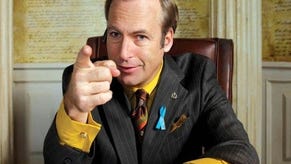"Quite normal" to sing the Qur'an - artist
BBC report examines LBP recall.
Speaking to the BBC's News at Ten TV programme, Toumani Diabate, the Malian singer of the music track that has caused the delay to LittleBigPlanet's release, has defended his lyrics.
The game was recalled from retailers worldwide last week so that the song could be removed. It features two lines that directly quote the Islamic holy text, the Qur'an, the inclusion of which Sony feared might offend some Muslims.
Diabate, a Muslim himself, doesn't see the problem. "It's quite normal to play music and be inspired by the words of the prophet Mohammed," he told the BBC. "It's my way to attract and inspire people towards Islam."
The BBC report noted that the track was "widely available" through other channels.
However, Sony wasn't prepared to take any risks. "We wanted to eradicate the possibility of the game falling into the hands of the somebody who may deem the music track offensive," Sony Computer Entertainment Europe spokesman Jonathan Fargher told the News at Ten.
The BBC canvassed Muslim community groups on the issue, and they took varying positions.
"Muslims believe the Qur'an to be the actual word of God... If it were to be used in a commercial way, that would upset and cause offence and hurt to many, many Muslims," said Shaykh Ibrahim Mogra of the Muslim Council of Britain.
"The number of stakeholders in the offence industry has just grown and grown and grown. Everybody gets offended about everything," countered Yasmin Alibhai-Brown of British Muslims for Secular Democracy.
The BBC's reporter, home editor Mark Easton, drew a parallel with the controversy Sony faced last year over the appearance of Manchester Cathedral as a battleground in Resistance: Fall of Man, something that offended many in the Church of England. However, in that instance, the game was not withdrawn.
But he concluded that corporations were no longer prepared to take financial risks on religious issues.
"In an increasingly globalised world, people feel more anxious that their their identity will be lost in some corporate, multicultural soup," Easton said. "But the same forces that they think threaten their individuality also give them the power to fight for things they hold dear."
He cited the fatwa declared on author Salman Rushdie, the violence over Muslim cartoons in the Dutch press, and Christian protests at Jerry Springer The Opera as events that had changed the landscape for companies. "Now even the most powerful multinationals choose to steer clear of religious backlash," Easton said.
"Some will see it as political correctness gone mad, others as refreshing corporate sensitivity. But Sony's decision has more to do with hard-headed business."
It's an interesting report. You can view it on the BBC iPlayer; the report starts just over 15 minutes into the programme.









